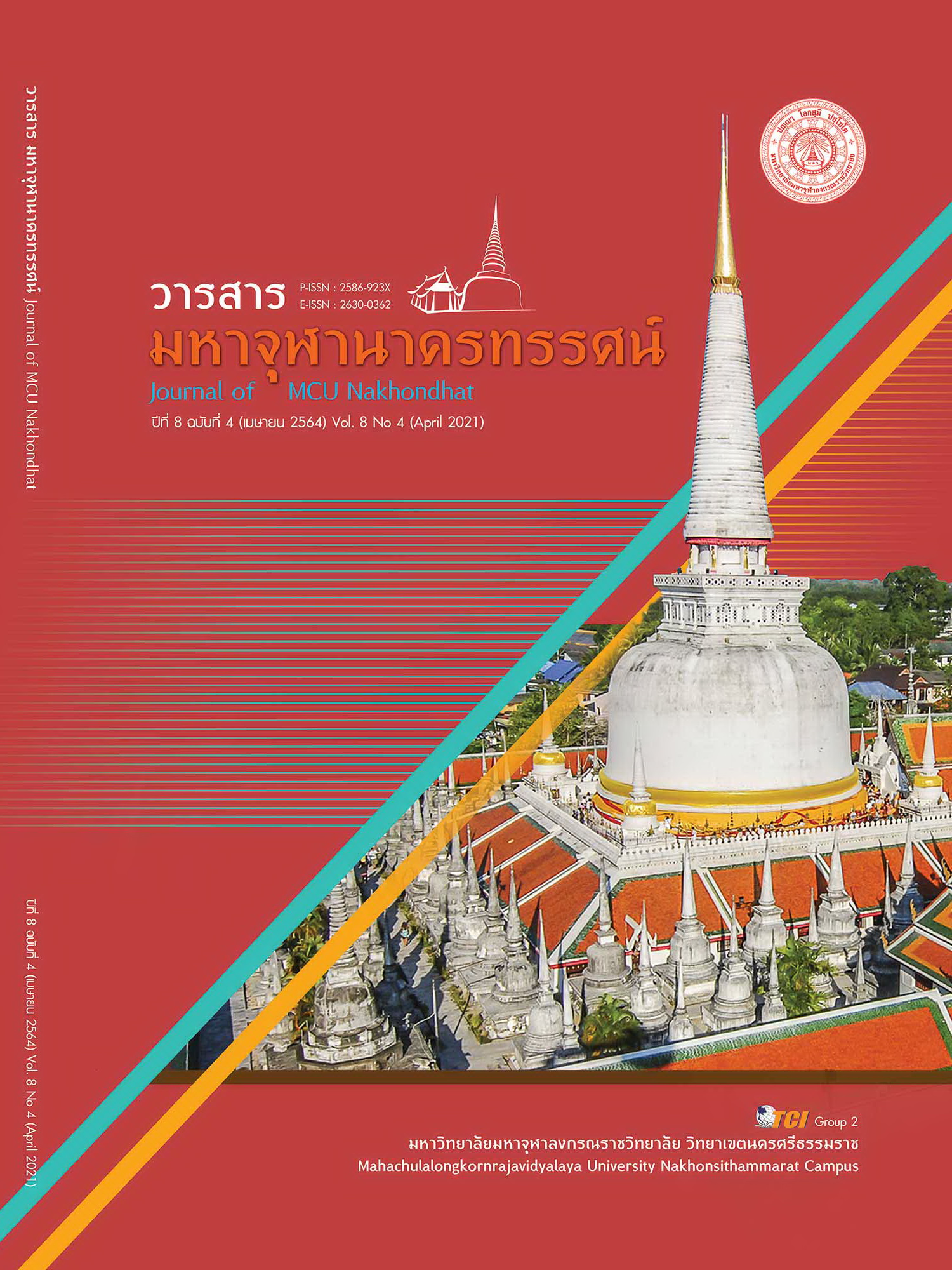THE ACCEPTATION OF GOOD GOVERNANCE PRINCIPLES TO PUBLIC MANAGEMENT
Main Article Content
Abstract
Good governance is the administration of the public sector in all respects with just and efficiency. By focusing on the use of a participatory process from all parts of society whether it is the public sector, private people, seriously and continuously so that the country has a strong foundation of democracy having legal justification, stability, and an efficient administrative structure. Transparent and can be examined if the country will have sustainable growth business focus or performing various official duties without paying attention to the matters of society, people and the environment is therefore impossible having good management has become a matter of all sectors to focus on and begin to practice more. Good governance is a trend that every sector, whether it is the government sector. Private sector and the public sector pay attention and apply it in the operations of the organization. With the principles of good governance it consists of 6 principles: rule of law, virtue, transparency, and participation. Responsibility and the value principle In addition, it also makes related third parties faith and confidence in the organization that will lead to continuous development such as a transparent organization. Would gain the trust in doing business a transparent government accountable naturally builds confidence among investors and the public as well as having a positive effect on the stability of the government and the progress of the country. If the public will have the trust of government officials civil servants must be virtuous, compassionate, competent and behave consistently. Public sector executives or high - ranking government officials would reflect the high level of governance of that society or state.
Article Details
References
เกรียงศักดิ์ เจริญวงศ์ศักดิ์. (2556). การคิดเชิงอนาคต. กรุงเทพมหานคร: ซัคเซสมีเดีย.
ชัยอนันต์ สมุทรวานิช. (2550). จดหมายเปิดผนึกจากที่ประชุมคณาจารย์ คณะรัฐศาสตร์ มหาวิทยาลัยธรรมศาสตร์. กรุงเทพมหานคร: ผู้จัดการ.
ถวิลวดี บุรีกุล. (2563). ธรรมาภิบาล. เรียกใช้เมื่อ 11 สิงหาคม 2563 จาก http://wiki.kpi.ac.th/index.php?title=%E0%B8%98
ธีรยุทธ บุญมี. (2551). ธรรมรัฐแห่งชาติยุทธศาสตร์ก็หายนะประเทศไท. กรุงเทพมหานคร: สายธาร.
บุษบง ชัยเจริญวัฒนะ และบุญมี ลี้. (2554). ตัวชี้วัดธรรมาภิบาล. (พิมพ์ครั้งที่ 2.) กรุงเทพมหานคร: สำนักพิมพ์คุรุสภาลาดพร้าว.
ปธาน สุวรรณมงคล. (2558). การบริหารงานภาครัฐกับการสร้างธรรมาภิบาล. กรุงเทพมหานคร: สถาบันพระปกเกล้า.
สภาหอการค้าแห่งประเทศไทย. (2557). หลักการสากลของธรรมาภิบาล. กรุงเทพมหานคร : สภาหอการค้าแห่งประเทศไทย.
สันต์ชัย รัตนะขวัญ. (2556). การบริหารจัดการที่ดีในการปกครองท้องถิ่น. กรุงเทพมหานคร: มหาวิทยาลัยราชภัฏสวนสุนันทา.
แสงชัย อภิชาตธนพัฒน์. (2559). หลักธรรมาภิบาลในการบริหารองค์กร. กรุงเทพมหานคร: วิทยาลัยรัฐธรรมนูญ.
อานันท์ ปันยารชุน. (2541). มุมมองนายอานันท์. กรุงเทพมหานคร: มติชน.
Pierre, I. (2000). Debating governance. New York: Oxford University Press.
Rhodes, R. A. W. (1997). Understanding Governance: Policy Networks, Governance, Reflexivity, and Accountability. Maidenhead: Open University Press.


